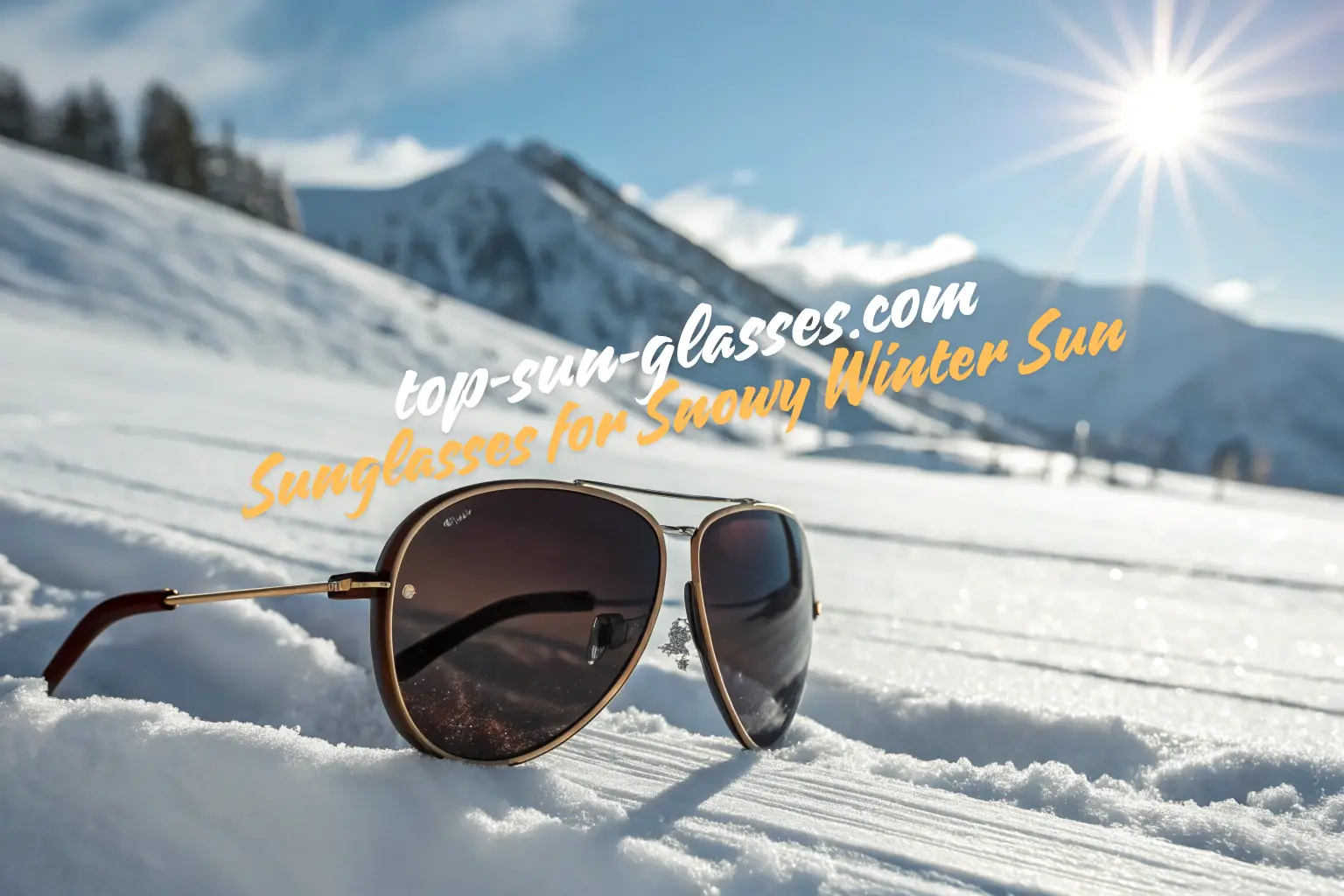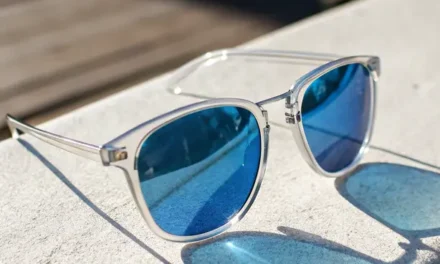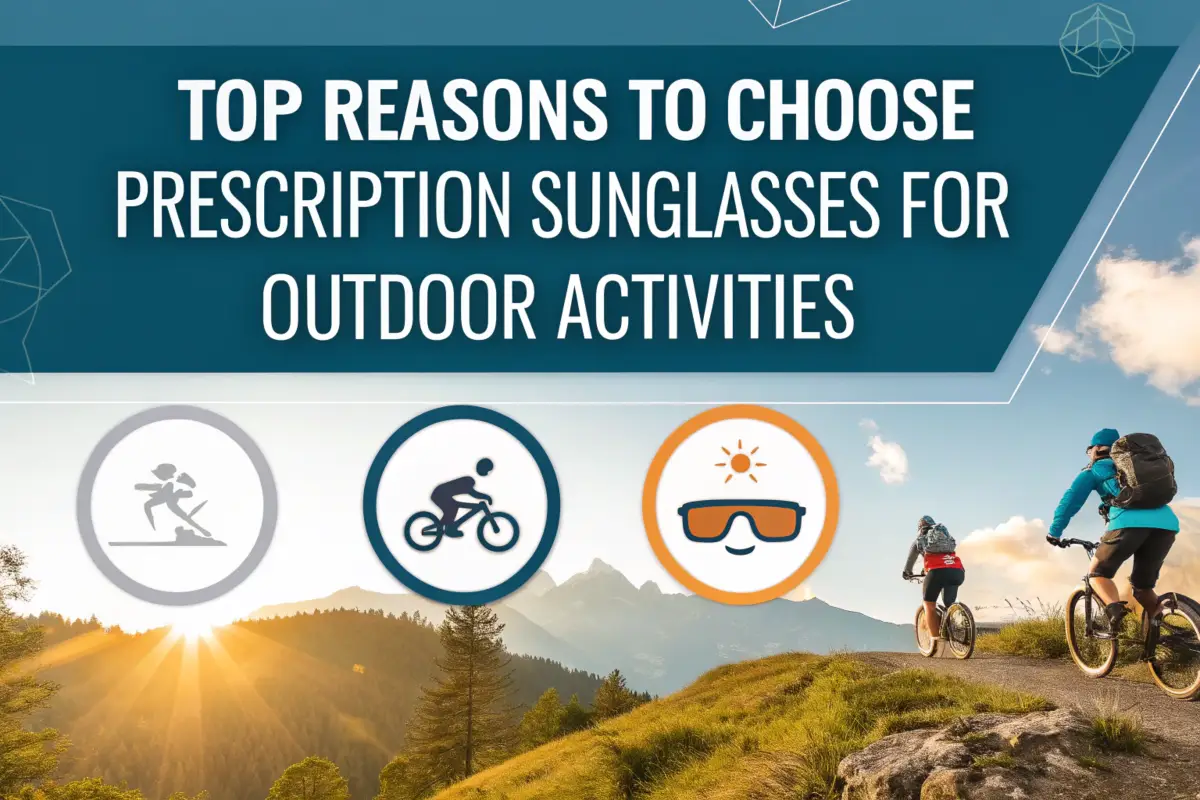The winter season brings breathtaking snowy landscapes and crisp air, but it also presents hidden risks for your eyes. The winter sun can be surprisingly intense, especially in snowy environments where sunlight reflects off the white surfaces. To keep your eyes-healthy during the colder months, it’s essential to wear sunglasses that provide proper UV protection. This article explores the best sunglasses for snowy conditions and highlights why UV-protection sunglasses are necessary for winter adventures.
Why the Winter Sun is a Hidden Danger for Your Eyes
When people think of sun protection, they often associate it with summer. However, the winter sun can be just as harmful, if not more. Snow reflects up to 80% of UV rays, which means you’re exposed to both direct sunlight and reflected rays from the ground. This double exposure increases the risk of eye conditions such as photokeratitis (snow blindness), cataracts, and long-term retinal damage.
To keep your eyes healthy during winter, wearing sunglasses with UV protection is essential. High-quality sunglasses block harmful UVA and UVB rays, reducing the risk of damage caused by the sun’s reflection on snow.
The Importance of UV Protection Sunglasses in Snowy Environments
Sunglasses aren’t just for fashion; they are critical in maintaining eye health, particularly in snowy conditions. UV protection sunglasses are designed to shield your eyes from harmful ultraviolet rays, intensifying snow and ice.
The effects of prolonged exposure to UV rays include:
- Snow Blindness (Photokeratitis): A painful condition caused by overexposure to UV rays, similar to a sunburn but on your eyes.
- Cataracts: Long-term UV exposure accelerates cataract development, clouding the eye’s lens.
- Macular Degeneration: UV radiation can harm the retina, leading to vision problems over time.
Wearing UV protection sunglasses during winter skiing, snowboarding, and hiking ensures your eyes stay healthy and protected.
Features to Look for in Winter Sun Sunglasses
Choosing the right sunglasses for snowy environments involves more than just style. To ensure maximum protection and comfort, look for the following features:
- UV Protection: Always choose sunglasses labeled with 100% UV protection to block UVA and UVB rays.
- Polarized Lenses: Polarized sunglasses reduce glare caused by the sun’s reflection on snow, improving visibility and reducing eye strain.
- Wraparound Frames: Wraparound designs offer additional coverage, protecting your eyes from sunlight entering from the sides.
- Tinted Lenses: Gray, brown, and mirrored lenses are excellent for snowy conditions, enhancing contrast and reducing brightness.
- Anti-Fog Coating: Winter sports and outdoor activities can cause lenses to fog up. Anti-fog coatings keep your vision clear.
- Durability: Sunglasses made with high-quality materials are essential for outdoor adventures.
By focusing on these features, you can confidently wear sunglasses that will keep your eyes-healthy and protected throughout winter.
Best UV Protection Sunglasses for Snowy Adventures
To make the most of winter sports and outdoor activities, here are some of the best UV protection sunglasses you can consider:
- Oakley Clifden: These sunglasses are designed for extreme weather conditions, offering polarized lenses and wraparound coverage for ultimate protection.
- Smith Optics I/O MAG: Known for their anti-fog lenses and excellent UV protection, these sunglasses are perfect for skiers and snowboarders.
- Maui Jim Peahi: These sunglasses reduce glare and enhance clarity by featuring polarized lenses and scratch-resistant coatings.
- Julbo Shield: Designed for snowy environments, these sunglasses combine UV protection with side shields for extra coverage.
- Ray-Ban Outdoorsman: A stylish option with UV protection, ideal for casual winter wear and outdoor adventures.
Each of these sunglasses ensures your eyes stay healthy and protected, even in the most challenging winter-sun conditions.
How Wearing Sunglasses Keeps Your Eyes Healthy in Winter
Wearing sunglasses in winter isn’t just about comfort; it’s a crucial step to protect your eye health. Here’s how sunglasses help:
- Reduce UV Exposure: UV protection sunglasses block harmful rays that can cause short-term and long-term eye damage.
- Prevent Eye Fatigue: Snow reflects light, making it harder for your eyes to adjust. Wearing sunglasses reduces glare and prevents eye strain.
- Shield Against Wind and Snow: Winter winds can carry ice particles and debris that irritate the eyes. Wraparound sunglasses offer protection from these elements.
- Preserve Vision Clarity: Polarized lenses minimize glare, allowing you to see clearly even in bright, snowy conditions.
By making it a habit to wear sunglasses in winter, you can enjoy the beauty of snowy environments while keeping your eyes healthy and protected.
Choosing the Right Lens Tint for Winter Sun Protection
Lens tint significantly affects how well sunglasses perform in snowy conditions. Here’s a breakdown of the best lens tints for winter sun:
- Gray Lenses: Provide true color perception and are great for bright, sunny days in snowy environments.
- Brown/Amber Lenses: Enhance contrast and depth perception, making them ideal for activities like skiing and snowboarding.
- Blue/Green Lenses: Reduce glare and improve visibility on partly cloudy winter days.
- Mirrored Lenses: Reflect sunlight, reducing brightness and preventing eye strain in extreme conditions.
Choosing the right lens tint ensures you can comfortably wear sunglasses while enjoying clear and protected vision in winter.
Tips for Maintaining Your UV Protection Sunglasses in Winter
Taking care of your sunglasses ensures they last longer and continue to protect your eyes effectively. Follow these tips to maintain your UV protection sunglasses:
- Clean Regularly: Use a microfiber cloth and lens cleaner to remove snow, dirt, and smudges.
- Avoid Scratches: Store your sunglasses in a protective case when not in use.
- Prevent Fogging: Use anti-fog wipes or sprays to clear lenses during winter sports.
- Check UV Coating: Over time, UV protection can wear off. Make sure your sunglasses continue to offer 100% UV protection.
- Protect Frames: Cold temperatures can make plastic frames brittle. Handle your sunglasses with care in extreme weather.
By following these tips, you can ensure that your sunglasses remain in excellent condition, providing reliable UV protection all winter.
Conclusion: Keep Your Eyes Healthy with the Right Winter Sun Sunglasses
The winter-sun poses unique challenges, especially in snowy environments where UV exposure is amplified. To keep your eyes healthy, wearing sunglasses with UV protection specifically designed for winter conditions is essential. You can enjoy winter sports and outdoor activities safely and comfortably by choosing sunglasses with polarized lenses, wraparound frames, and the right lens tint.
Don’t underestimate the power of the winter sun—protect your vision, reduce glare, and keep your eyes-healthy with the best sunglasses for snowy environments. Embrace the winter season with confidence and clarity!
see also: Top Reasons to Choose Prescription in Sunglasses for Outdoor Activities





